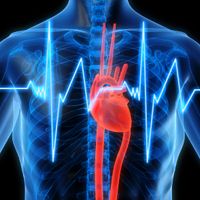Depression May Double Risk of Stroke
Depression over long periods of time may double the risk of stroke in adults, according to a study that assessed the health information of more than 16,000 adults over 50 years of age in order to determine if there is a link between stroke and depressive symptoms.

Depression over long periods of time may double the risk of stroke in adults, according to findings published in the Journal of the American Heart Association.
Researchers from the Harvard School of Public Health examined the health information of more than 16,000 adults over 50 years of age in order to determine the link, if any, between stroke and depressive symptoms. The participants, who were involved in a larger study, had been interviewed biennially between 1998 and 2010. They self-reported stroke incidence and depressive symptoms and their reports were confirmed by physician diagnosis.
Throughout the study period, there were 1,192 strokes among participants. People who reported high depressive symptoms at two consecutive biennially scheduled interviews were more than twice as likely to have a first stroke, compared to people without depression at either interview. Additionally, people who reported depressive symptoms at the first interview, but not a second consecutive interview, had a 66 percent increased risk of stroke compared to people without depressive symptoms at an interview.
“Because this is the first study to take this approach, we need replication of findings in independent samples, with people of different age groups, and exploring different reasons that depressive symptoms get better,” senior author Maria Glymour, ScD, explained in a press release. “The surprising results make such replications even more urgent.”
The researchers did acknowledge that they didn’t look into whether depressive symptoms diminished because of treatment or for other reasons. However, the results of the study indicate that treatment, even if effective for depressive symptoms, might not have the immediate ability to reduce risk of stroke in these patents.
The diminished depressive symptoms might have more of an effect on women than men, the researchers additionally pointed out, but they said patients younger than 65 years had greater stroke risk linked to depression than older patients. The timing of the onset of depression wasn’t linked to the stroke risk.
“Although we now know that depression strongly predicts stroke on par with many other major stroke risk factors, we still need research to understand exactly why this link occurs and whether we can potentially reduce stroke risk by treating depression,” Glymour continued in another statement.
Prior research into this sphere has demonstrated that depressive symptoms are linked to an increased risk of high blood pressure, abnormalities of the autonomic nervous system, and increased inflammatory responses. While depression may trigger underlying vascular problems, even including infection or atrial fibrillation, the authors continued in the press release, depressed people are also more likely to smoke and be less physically active, which can also contribute to these problems.